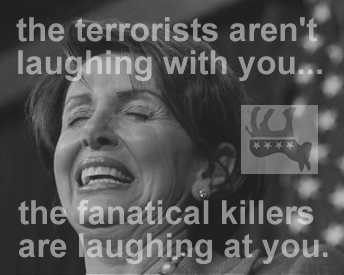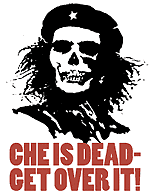December 14, 2005
After Tookie
In the wake of Stanley "Tookie" Williams' execution, there is a lot of discussion about the death penalty. Some people, of course, think there should be no death penalty. But some states do have the death penalty--and prosecutors, therefore, are entitled to seek it when trying murder cases.
Williams co-founded the Crips, one of the most dangerous gangs in America. He was found guilty of murdering four people for paltry sums of money nearly 25 years ago. He never admitted guilt, although the justice system found him guilty. He was never able to find proof that someone else did the killings. His legal options ran out.
Why do some death row inmates inspire some to fight for their lives? Hollywood seems to glom on to prisoners like Tookie and Mumia Abu-Jabal, who is on death row for killing a police officer. The killers who inspire the "save so-and-so" movements usually do something while in jail that some think redeems them, such as finding religion, getting a college education or lecturing on the folly of crime. Does this erase their crimes and society's responsibility for punishing them to the full extent of the law?
What about clemency? What motivates a governor or president to grant clemency (it need not be for a murderer, either). Ben Shapiro has some thoughts about executive clemency:
Read More "After Tookie"
A simple question must be asked: Why? Why should a prisoner, granted due process of law, be given the opportunity to plead his case before a political actor? If our system of law is designed to be impartial, why make it openly political by granting interest groups the opportunity to lobby an executive who might be beholden to them? Would Schwarzenegger have hesitated about signing off on the execution of a white man convicted of killing a black family? Would he have pondered the ins and outs of a criminal conviction if Hollywood stars like Jamie Foxx and cultural figures like Sister Helen Prejean had not stepped forward to defend Tookie? Would Schwarzenegger have glanced at the clemency petition without the glare of the media spotlight?
...
Gov. Mark Warner (D-Va.) commutes the death sentence of convicted murderer Robin Lovitt. Lovitt, who stabbed Clayton Dicks to death with a scissors in 1988, saw his death sentence become a life sentence after Warner, who has presidential aspirations, sought to avoid rubberstamping the 1,000th execution in the United States since the re-institution of the death penalty in 1977. Were Lovitt number 999, he would likely be dead right now. Were he innocent, Warner should have pardoned him, not commuted his sentence.
Our justice system is not infallible. Juries sometimes err (see Simpson, O.J.). Evidence is sometimes lost. Undoubtedly, once in a blue moon, our appellate system grants sanction to sentences for the wrongfully convicted. But the answer is not granting one person -- one very politically motivated person -- the power to abrogate the law.
Exactly. We don't like it when special interest groups lobby for government handouts. Why should we like it when others lobby for clemency of a convicted murderer who has had his chance in our justice system? Why weren't Mike Farrell and his pals lobbying for justice for the lost lives of Tookie's victims?
Perhaps it's because his victims, gone for nearly a quarter of a century, don't offer photo ops and quotes. The shameful thing is, Tookie's supporters seem to have confused him with his victims.
« Hide "After Tookie"
Show Comments »






















